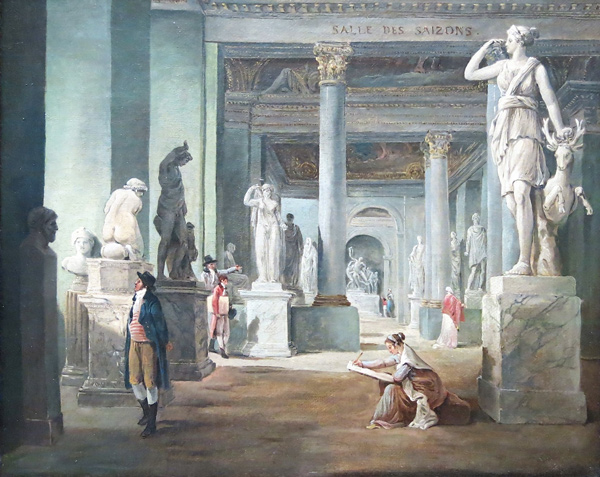In Paris, France, Robert Livingston informs the United States Secretary of State, James Madison, that his commission is insufficient for negotiating the purchase of Louisiana. In Washington City, the U.S. Attorney General, Levi Lincoln, writes a list of questions for Meriwether Lewis to ask of the Native Nations he will meet.
Livingston’s Commission
Paris 17 April 1803.
Dear Sir [James Madison]
. . . . .
there are two circumstances with which I am not quite Satisfied . . . . The first is that I have not the Same rank in the Commission with Mr Munroe . . . . my age & the Stations I have held entitled me not to have had any person placed above me in the line I fill. The second is that the commission contains powers only to treat for lands on the east side of the Mississippi.
I am Dear Sir, with much esteem & respect Your most Obt hum: Servt
Robt R Livingston[1]Robert R. Livingston to James Madison, Founders Online, National Archives, founders.archives.gov/documents/Madison/02-04-02-0631 accessed 29 May 2022. [Original source: The Papers of James Madison, … Continue reading
Questions for Indians
Washington April 17 1803
Sir
. . . . .
Would it not be well . . . to add more explicitly those articles which have for their object the improvement of the mind, & the preservation of the body—Such, as, the ideas the various tribes, or nations possess of a supreme being, their worship, their religion, the agency it has in their respective Govets in war, & in peace; its influence on their manners—their actions which are crimes agt. their society, & the punishments—Their ideas of property, & the tenures by which they claim it—& also the probability of impressing their minds with a sense of an improved religion & morality & the means by which it could be effected—
Would it not be well also to mention the diseases incident to various climates, situations, and seasons; the age most liable to them, the method of treating them, the medicinal articles applied, the age which is considered as old, & the manner of life most condusive to it &c? If any plants or roots of uncommon virtues as medicine should be found, would it not be an object to procure the seed?—
As Capt Lewis may have in his company, some who have not had the small pox, would it not be best to carry some of the matter for the kinepox with him?
I am Sir most respectfully your most obt Servt
Levi Lincoln[2]Levi Lincoln to Thomas Jefferson, Founders Online, National Archives, https://founders.archives.gov/documents/Jefferson/01-40-02-0136-0004 accessed 12 May 2022. [Original source: The Papers of Thomas … Continue reading
Notes
| ↑1 | Robert R. Livingston to James Madison, Founders Online, National Archives, founders.archives.gov/documents/Madison/02-04-02-0631 accessed 29 May 2022. [Original source: The Papers of James Madison, Secretary of State Series, vol. 4, 8 October 1802–15 May 1803, ed. Mary A. Hackett, J. C. A. Stagg, Jeanne Kerr Cross, Susan Holbrook Perdue, and Ellen J. Barber. Charlottesville: University Press of Virginia, 1998, pp. 524–527.] |
|---|---|
| ↑2 | Levi Lincoln to Thomas Jefferson, Founders Online, National Archives, https://founders.archives.gov/documents/Jefferson/01-40-02-0136-0004 accessed 12 May 2022. [Original source: The Papers of Thomas Jefferson, vol. 40, 4 March–10 July 1803, ed. Barbara B. Oberg. Princeton: Princeton University Press, 2013, pp. 175–176.] |
Experience the Lewis and Clark Trail
The Lewis and Clark Trail Experience—our sister site at lewisandclark.travel—connects the world to people and places on the Lewis and Clark Trail.
Discover More
- The Lewis and Clark Expedition: Day by Day by Gary E. Moulton (University of Nebraska Press, 2018). The story in prose, 14 May 1804–23 September 1806.
- The Lewis and Clark Journals: An American Epic of Discovery (abridged) by Gary E. Moulton (University of Nebraska Press, 2003). Selected journal excerpts, 14 May 1804–23 September 1806.
- The Lewis and Clark Journals. by Gary E. Moulton (University of Nebraska Press, 1983–2001). The complete story in 13 volumes.


